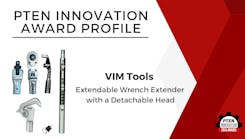Chances are, most techs have faced this irritation at one time or another. While the internet provides a benefit in being able to access information and/or parts at the touch of a button, the internet is also a curse for the same reasons. Since anybody can post opinions, how-to info, views and reviews, we are now burdened by a dizzying array of self-proclaimed experts, many of whom don’t seem to know the difference between a bag of rocks and a bag of socks. As a result, we now have some customers (I'm not saying all customers, but enough to make you want to pull your hair out,) who think they know more than you, and seem more than willing to share their “expertise.”
An example: a male brings his 2015 Ford F-150 in for an oil change, and proceeds to tell you what specific oil and filter to use, why you should swap out the OE oil drain plug for an aftermarket plug, and suggests that you install a longer dipstick, etc. — all because he saw this on someone’s internet post. Or he proceeds to tell you that the oil pressure sender is junk and a different sender is needed, because some guy posted a video in his home garage, claiming to be a Ford truck “guru.”
While your gut reaction may be to tell the guy to shut his trap and let you perform the needed service, instead you bite your lip and take the time to politely educate the individual. Do you run into these internet-educated folks very often? If so, how do you deal with the situation? Would an orthopedic surgeon tolerate a patient who tells him how to perform a hip replacement based on what someone posted online? I don’t think so.
We’re now faced with the prospect of (hopefully only a few) customers who insist that your method in a specific service is wrong, based solely on what they saw on someone’s YouTube post. If you have any such experiences you’d like to share, and/or if you have any tips on how to diplomatically deal with this, please let us know. You can e-mail me at [email protected]. By the way, I know that this problem exists because I read it on the internet.
INSULATED TOOLS
Ever consider adding a few insulated hand tools to your arsenal? Insulated tools feature protective coatings that prevent shorts if the tool comes into contact with a hot electrical source. An array of hand tools are now available that feature a special insulating coating, including screwdrivers, pliers, wire cutters, breaker bars, ratchets, socket wrenches and box/open-end wrenches (in both fractional and metric sizes). While these tools are common among electricians, automotive techs can also benefit by extra safeguarding from accidental shorts when the tool is in close proximity to live connectors.
It's something to consider — and yet another excuse to buy more tools.


